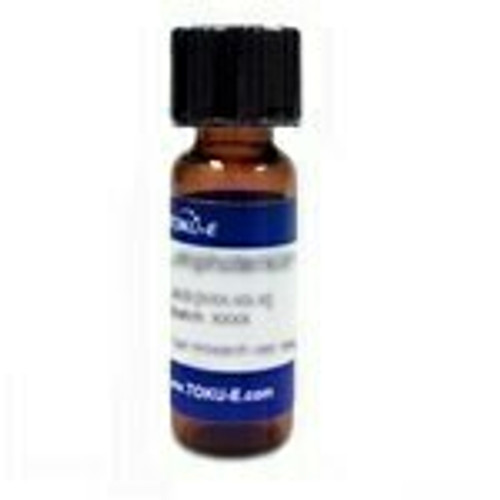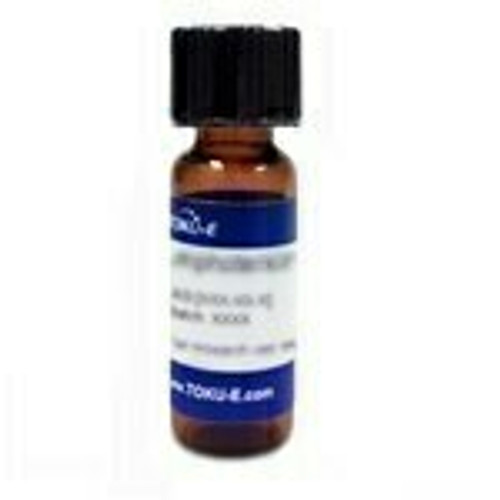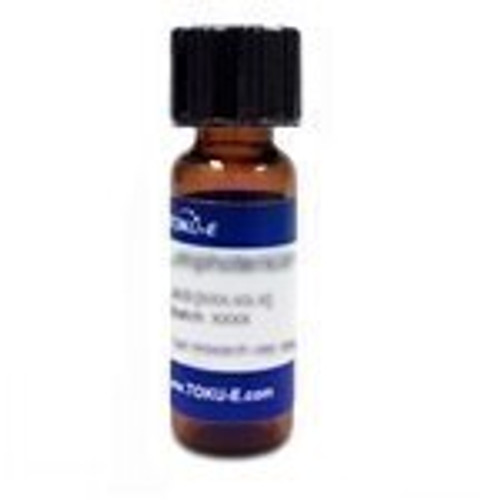Helvolic Acid is a triterpenoid antibacterial mycotoxin produced by Aspergillus and other fungal species, structurally related to cephalosporin P1 and fusidic acid. Helvolic acid is active against Gram positive and Gram negative organisms, including Clostrium pseudomonas, Mycobacterium shigella, Salmonella typhimurium and Corynebacterium. Helvolic acid is a strong synergist of penicillin against multidrug resistant S. aureus. Helvolic acid has antitumor, antitrypanosomal, antimycobacterial and potent antiviral activity against H. pylori.
| Molecular Formula | C33H44O8 |
| References |
Li Y et al (2005) Anti-Helicobacter pylori substances from endophytic fungal cultures. World J Microbiol Biotech. 21:553 Ling Q et al (2009) In vitro synergistic antibacterial activities of Helvolic acid on multi-drug resistant Staphylococcus aureus. Nat. Prod. Res. 23:309 Momoko G et al (2016) In vitro antitrypanosomal activity of the secondary metabolites from the mutant strain IU-3 of the insect pathogenic fungus Ophiocordyceps coccidiicola NBRC 100683. Chem. Pharm. Bull. 64:988 Oxley PJ (1966) Cephalosporin P and Helvolic acid. J. Chem. Soc. Chem. Commun. 729 Wareerat S et al (2016) Helvolic Acid, a secondary metabolite produced by Neosartorya spinosa KKU-1NK1 and its biological activities. J. Sci. 43:483 |







